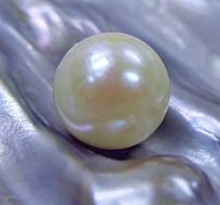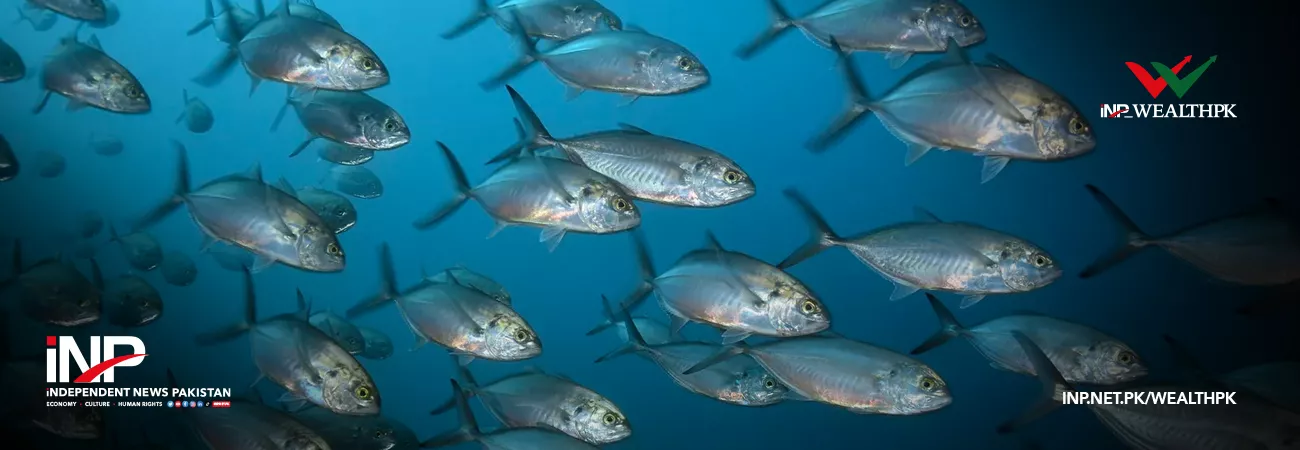INP-WealthPk
Faiza Tehseen
Aqua polyculture – an unconventional but profitable farming practice – offers cash-strapped Pakistan an opportunity to fetch a fortune and alleviate poverty, reports WealthPK. Talking about aqua polyculture, Director General of Fisheries of Sindh Dr. Mir Allah Dad Talpur told WealthPK, “Polyculture is one of the oldest but smartest techniques to rear multiple species of aquatic organisms in the same pond. It is four times more profitable to get quality output than the regular production by maintaining a few factors, such as fertilization, stocking, environment, and sufficient supply of feed and oxygen.’’ He said fish species with different feeding habits were cultured effectively for quality outputs through polyculture.
‘’It is important to choose the species with a few characteristics, i.e. high growth rate, disease-resistance, having more flesh but consuming less food than body weight, growing and producing naturally, such as minnows, especially of the carp family, and low mortality rate in high density.” From economic point of view, he said, the selected edible aquatic organisms should be rich in nutrition and taste as well as high in demand in both raw and value-added forms. ‘’Although it is an altogether new concept for our regular farmers or non-conventional farming lovers, it is manageable, space-saving, and profit-oriented. This is the usually practiced system in the country wherever fish farming on a commercial scale is done. More development can be done in this sector to make it more sustainable for the socioeconomic benefit of farming communities,” added Dr. Mir Allah Dad Talpur.

Dr. Aasif Javaid, a passionate non-conventional farmer from Rahim Yar Khan and also the CEO and owner of No.1 Organics, is the first-ever farmer in Pakistan to harvest pearls from polyculture. After getting extensive training in pearl culture from abroad, he decided to make pearl culture a regular part of polyculture. Talking to WealthPK, he said, “Polyculture is the most positive and practical activity to rear aquatic organisms in a controlled environment for socio-economic purposes. I did successful trials at my farm. After setting up the whole system, I am now in a position to train people and promote the addition of pearl culture to the conventional farming of aquatic animals. My aim is to train people free of cost and to make them able to earn a sound livelihood. Trade of pearls and aquatic animals in fresh or value-added form has become a billion-dollar industry worldwide.
It is high time to bring awareness about its importance among our people to improve their socio-economic status.” About 71% of the earth’s surface is covered with water, of which oceans hold 95.6%. A large population depends upon oceans and other water sources to get food and earn a livelihood in different ways. The contribution and development of all stakeholders is very important for improving these sources. The United Nations General Assembly has declared 2022 as the International Year for Artisanal Fisheries and Aquaculture (IYAFA). Concerning this, the Blue Transformation is the agenda to be achieved by the year 2030 as a part of Sustainable Development Goals. FAO has estimated that China, Vietnam, and Norway will play a key role in this sector.
There will also be an increase in value-added products concerning aquatic food and other related trade inputs, i.e. energy, feed, fish oil, and frozen, salted, canned, or pickled items, etc. Chinese expertise in this concern is outstanding. About 4000 years ago, polyculture was a part of early Chinese history. Multiple species of carp were stocked in the same pond to advantage maximum type of seafood. China is advanced in polyculture practices, i.e. mixed-age fish culture and multi-grade (a technique of fish rearing from fingerlings to marketable size in a series of ponds to sort it according to size). As a neighbouring country and an everlasting friend, Pakistan can get practical coordination from China to popularize polyculture in Pakistan. For its vast socio-economic benefit, Pakistan must focus on this sector seriously.
Credit : Independent News Pakistan-WealthPk




